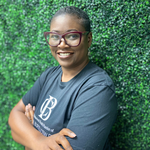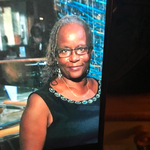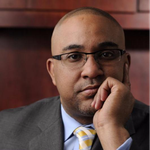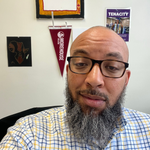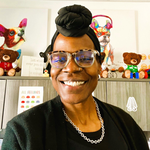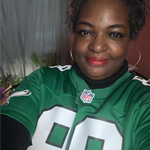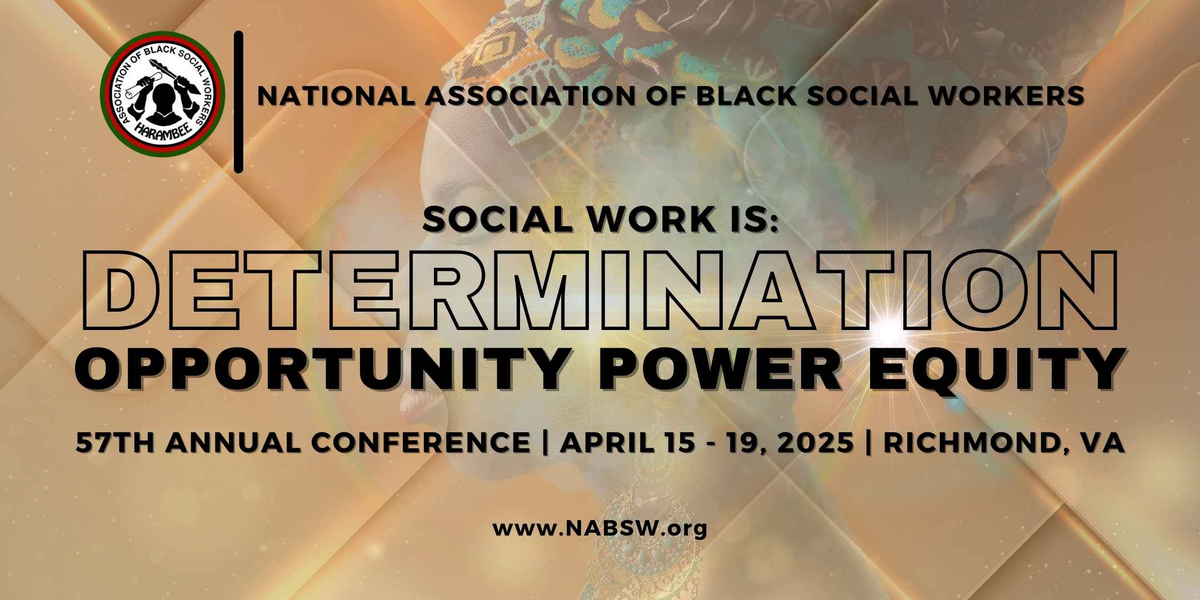Welcome
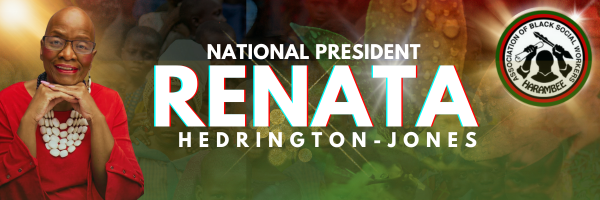
Dear Esteemed Colleagues and Friends,
On behalf of the National Association of Black Social Workers (NABSW), it is my distinct honor and pleasure to invite you to the 57th Annual NABSW Conference, which will take place in the vibrant city of Richmond, Virginia, from April 15–19, 2025.
This year's theme, "Social Work is Determination, Opportunity, Power, Equity," encapsulates the transformative impact of our profession and the legacy we continue to build. Social workers are at the forefront of change, harnessing our determination to overcome challenges, creating opportunities for communities to thrive, leveraging power to dismantle systems of oppression, and advocating for equity at every turn.
Richmond, a city rich with history and resilience, serves as the perfect backdrop for this pivotal gathering. From dynamic keynote speakers to thought-provoking workshops, this conference will provide a space to celebrate our collective achievements, deepen our skills, and chart a course toward a more just and equitable future.
Whether you are a seasoned professional, an emerging leader, or a dedicated student, this conference offers something for everyone. Beyond the sessions, you will have the chance to connect with like-minded individuals who share your passion for advancing Black communities and uplifting our profession.
Mark your calendar and join us for this powerful experience. Together, let us renew our commitment to being catalysts for transformation, rooted in the determination, opportunity, power, and equity that define social work at its best.
We look forward to welcoming you to Richmond!
Forward Ever, Backwards Never,
Dr. Renata Hedrington-Jones
National President
National Association of Black Social Workers
Registration and Information
Conference Registration and Information
(Please read carefully prior to completing the conference registration form)
Register Now to Receive the Early Bird Discounted Rate!!!
The National Association of Black Social Workers (NABSW) is a voluntary cultural and membership organization founded in May 1968 by a group of social workers and human service professionals to address the social welfare needs of Black people across the country. The NABSW conference is open to NABSW members and potential members only.
The full conference registration fee includes: the conference tote bag, name badge, admission to workshop sessions, plenary sessions/institutes, a continental breakfast, coffee/tea break, annual luncheon, access to the exhibit hall, research poster session and authors' pavilion. The conference badge must be visibly displayed at all times for admission. LOST BADGES WILL NOT BE REPLACED.
Registration forms received after midnight on January 31, 2025 will be considered as general registration. For further information, please call the national office at (202) 678-4570 or email: officemanager@nabsw.org.
ONLINE CONFERENCE INFORMATION AND REGISTRATION
NABSW's website, www.nabsw.org, has been enhanced to aid with conference registration via the Glue Up portal.
REGISTRATION PROCEUDRES FOR WORKSHOP AND INSTITUTE PRESENTERS
All presenters must register for the conference. All presenters must check in at the registration counter in the exhibit hall located in Capital Ballroom on the lower level of the Richmond Marriott. Registration packets, including the official name badge will be distributed at the time of registration. Your cooperation is greatly appreciated.
REGISTRATION INFORMATION FOR STUDENTS
Full-time students (bachelors, master and doctoral) must submit proof of matriculation status. Students must submit or bring a copy of their class schedule bearing the name and/or logo of the institution attending.
NOTE: To be eligible for student fees, the individual must be actively enrolled in school and taking at least nine (9) credit hours. A separate registration form is required for each student registering. This will eliminate problematic registration when picking up registration materials at the conference. Please bring your student identification and registration receipt to the conference.
CONTINUING EDUCATION UNITS (CEUs)
NABSW offers CEUs to participants who register for the conference and pay for CEUs. CEUs are provided by the National Association of Black Social Workers and licensed by Maryland and Washington DC licensing boards. The CEUs are based on contact hours of the actual workshops, institutes, symposiums, poster and plenary sessions attended by the individual. A total of up to 15.5 contact hours will be provided.
Please make sure the session monitor scans your badge before entering and departing each session you attend. Certificates of attendance will be issued for CEUs following the conference. If there are questions regarding CEUs please contact professionaldevelopment@nabsw.org. It is the responsibility of the participant to ensure their state's licensing board accepts CEU reciprocity from the above-mentioned state boards.
REFUNDS
Request for refunds must be made in writing and emailed to the national office at officemanager@nabsw.org no later than February 28, 2025. A $125 processing fee will be deducted from the original remittance. All refunds will be issued after May 15, 2025.
RETURN CHECKS
A $50 fee will be assessed for any returned check.
CONFERENCE DRESS ATTIRE
The NABSW conference is a professional conference. When attending plenary sessions, workshops or institutes, business or African attire is appropriate. Bring a wrap, jacket or sweater in that the conference rooms are often cold and beyond the control of the conference staff.
Apr 15 - 19, 2025 (EST)
Add to Calendar500 E Broad St
East Broad Street 500
Richmond, Virginia
Show on map
Registration Fees

NOTE: Early Bird Registration Extended
The Richmond Marriott is offering a complimentary 2-night stay with Breakfast for two (2) people in their Fall Line Restaurant to be used during the time of the national conference. All persons registering for the early bird rate will have the opportunity for their name to be placed in a drawing. Notification of the winner will be provided following the early bird due date of February 17, 2025.
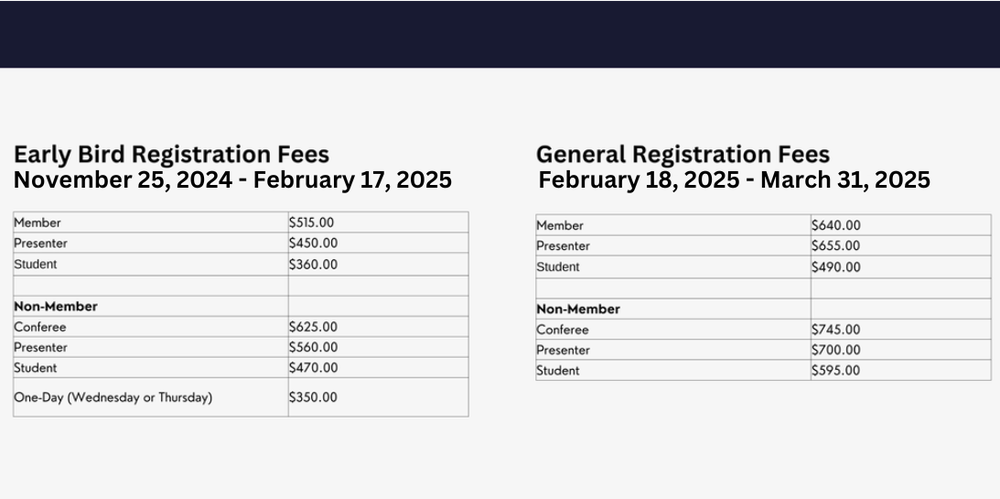
REGISTER FOR CONFERENCE
Schedule At-A-Glance





REGISTER FOR CONFERENCE
https://nabsw.glueup.com/event/118032/register/
Register for the Richmond Cultural Heritage Tour
Where: Tuesday, April 15th, 2025
Time: 12pm - 4pm
Pick Up: Marriott Richmond
Ticket Cost: $68.00
Payment Link: SOLD OUT

Keynote Speakers
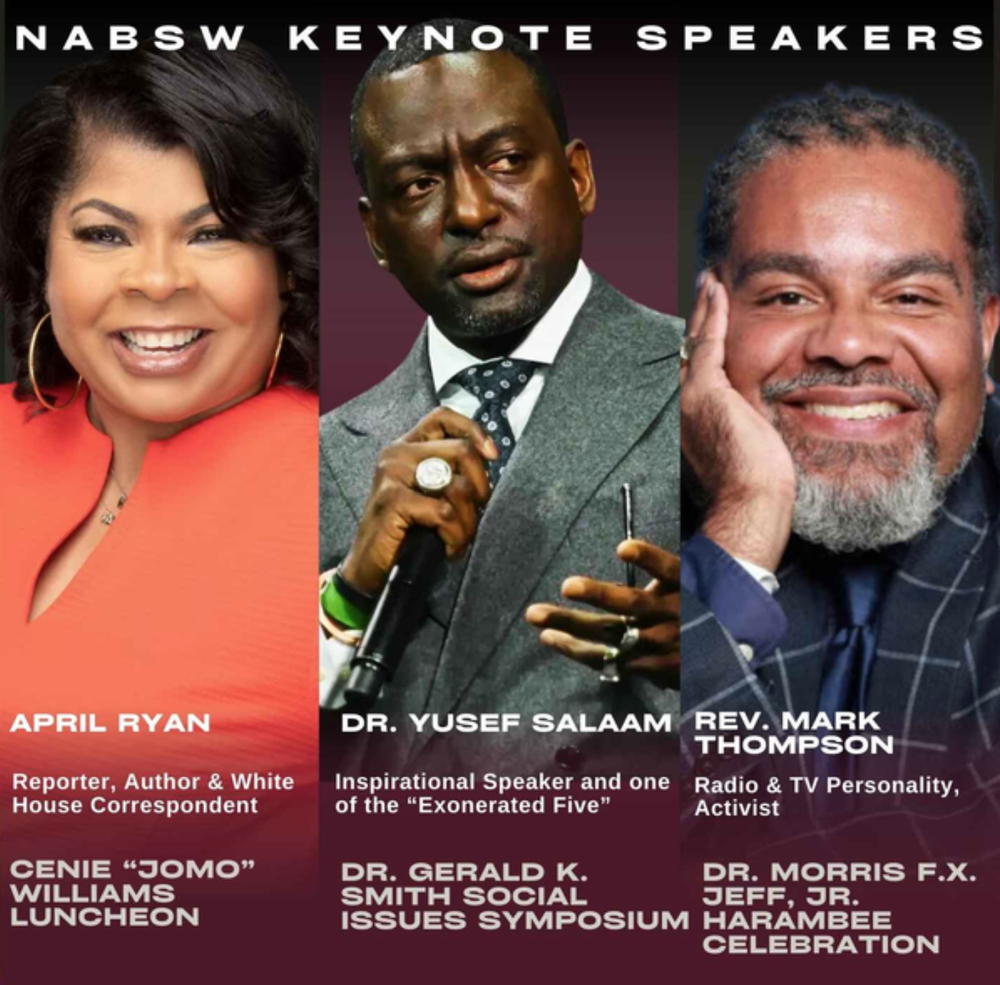
Concurrent Workshops

- Room: Salon J
- 9:30 AM - 11:30 AMApplying the Ujima Principle to Create an African-centered Community Care Approach to Support Black Children and Young Adults with DisabilitiesThis workshop is designed to introduce an African-centered care approach to addressing the unique needs of Black children and young adults with disabilities through collective responsibility, cultural grounding, and holistic well-being.
Track: Disabilities
2 CEUs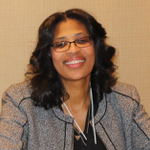
RIta Walters, PhD, LMSW
Department Chair and Professor at Ferris State University
- 4:00 PM - 5:30 PM#BlackMarriageMattersBlack marriages are often impacted by disparities in education, income, employment, and incarceration rates, which collectively create unique challenges for couples. However, despite these challenges, Black marriages reflect resilience, strong communal bonds, and cultural traditions that can be leveraged in both therapeutic and community work.
Track: Social Work Practice
1.5 CEUs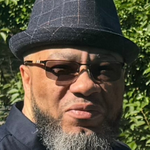
Jermel Gilliam, DMin, ABD, LMSW
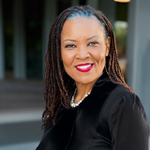
Christa Gilliam, PhD
Associate Professor
- Room: Salon I
- 9:30 AM - 11:30 AMWhy Can't I Secure My VA BenefitsThis workshop will give the basic instruction on how to complete each form, the proper wording upon each form and how this will allow their process to flow easier through the VA system. This workshop will also include answering all questions on the do's and the don't upon working towards a successful claim.
Track: Military Service Members, Veterans, and Their Families
2 CEUs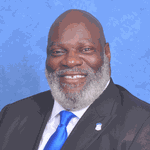
Linwood Alford, MSW, BHT, HST, QMHP A/C
Owner at Open Door Resource Center Inc
- 4:00 PM - 5:30 PMA Sankofa Experience: HBCU Social Work Students Cultivating Connections within an African Diaspora Cultural Exchange ProgramThis workshop highlights the importance of NABSW to advocate for and support Black college students, and that entities like NABSW and HBCUs play to increase the number of Black students who participate in study abroad programs. The African Self-Consciousness Theory is used to examine the level of African world-consciousness within descendants of Africa.
Track: International Social Work & Global Issues
1.5 CEUs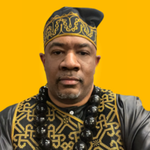
Nathan Stephens, PhD, LMSW
Assistant Professor at Illinois State University
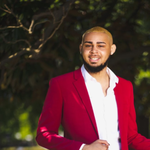
Jaire Clarida, MSW, LMSW, LCSW-A
PhD Student at Morgan State University School of Social Work
- Room: Salon H
- 4:00 PM - 5:30 PMBlack Leaders: Using Our Authentic VoicesThis workshop provides an opportunity for African Descended/Black individuals to develop an understanding of racial trauma and how we have internalized white supremacist messages that prevent us from speaking our truths and stopping harm by white colleagues. We will explore Dr. Kenneth Hardy’s Privilege and Subjugated Task (PAST) Model, specifically focusing on the Tasks of the Subjugated.
Track: Founding Prinicples and Values
1.5 CEUs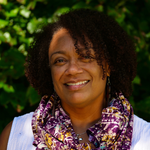
Tracey Rollins Spann, LMSW
- Room: Salon G
- 9:30 AM - 11:30 AMNABSW 101: What Conferees Need to Know But Were Afraid to Ask!!NABSW 101 aims to demystify the conference experience, providing essential insights and guidance that every conferee should know but might hesitate to ask. Whether you are a first-time attendee or a seasoned participant, this workshop will equip you with the tools and knowledge necessary to navigate the organization effectively and maximize your experience.
Track: Founding Principles & Values
2 CEUs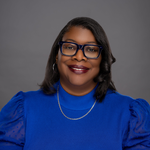
Catina Anderson, BSW, MSW, LSW, CSAYC
Member-At-Large
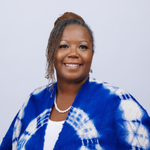
Dr. Tiffany, EdD Johnson
Chief Operating Officer at Lakeside Community Committee
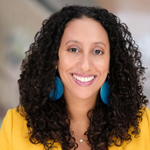
Kathy Lopes, MSW, LICSW
DEI Director of Newton Public Schools
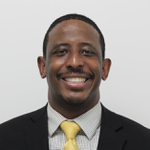
Damion Wilson, MSW
Coordinator School Social Worker
- 4:00 PM - 5:30 PMAncient Wisdom, Modern Healing: African-Centered Therapies for Black Women’s Sexual WellnessThe Pre-Colonial West African woman was revered; she ruled, protected, healed, and nurtured her community. Colonialism, systemic oppression, and widespread misogynoir have created generations of sexual trauma for Black women and their families. From Mammies, Jezebels, and Sapphires to Hoochie Mamas, Hoes, and Thots, the sexual lives of Black women have always been heavily scrutinized.
Track: Health and Wellness
1.5 CEUs
Ceara Corry, MSW, MPA, LCSW, LISW-CP
MSW, MPA, LCSW, LISW-CP
- Room: Monroe
- 9:30 AM - 11:30 AMExploring APOL-1 Mediated Kidney Disease among Afro-descendants and Health Inequities in Chronic Kidney DiseaseThis session will explore APOL-1 Mediated Kidney Disease, the significance of family health history, and the role of social determinants of health in understanding the risks associated with kidney disease. Join us to explore strategies for integrating culturally appropriate approaches and multidisciplinary healthcare teams to enhance kidney health outcomes in communities of Afro-descendants.
Track: Health and Wellness
2 CEUs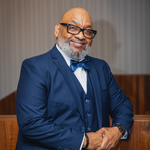
Patrick O. Gee, Sr., PhD, JLC
AKF Ambassador and Board Member at American Kidney Fund

Anika Lucas, MD, MTS
Assistant Professor of Medicine at Nephrology Fellow at Duke University
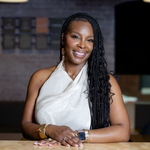
Andrea Moore, LMSW
Licensed Master Social Worker at DaVita Kidney Care
- Room: Jefferson
- 4:00 PM - 5:30 PMTracking the History of the Child Welfare System: It’s Role in Breaking Up and Controlling Black FamiliesThis workshop will explore the history of the child welfare system, with particular attention to legislation, policies and practices that have worked to police, control and separate Black families. It will trace initiatives NABSW has undertaken to advocate against racist and ill-informed practices and legislation; and identify current initiatives to oppose and repeal legislation that is not in the best interest of Black families and children.
Track: Child Welfare and Family
CEU: 1.5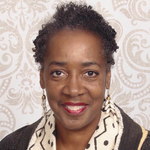
Toni Oliver, MSW
Consultant
- Room: Madison
- 9:30 AM - 11:30 AMHIV Education and Prevention Panel: Empowerment, Education and AdvocacyThis panel is transformatively designed to address HIV/AIDS through culturally relevant education, lived experiences and community-based approaches. Rooted in African traditions of collective responsibility and holistic wellness, this workshop aims to empower participants with the tools needed to prevent, manage, and advocate for HIV awareness within their communities.
Track: Health and Wellness
CEU: 2
Aramia Jones, BA
Renew Mobile Health

DeMarcus Jones, BA
Planned Parenthood of Tennessee & North Mississippi
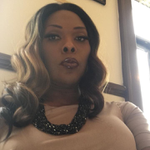
Zakia McKensey
Executive Director Nationz Foundation
- 4:00 PM - 5:30 PMNavigating African-centeredness in NON- African-centered spacesThis session will review the African-centered values and concepts which are foundational in nature to the scope of practice. We will discuss challenges faced in practice as we marshal our expertise in our communities. We will discuss the importance of incorporating African-centeredness within the full scope of who we are personally and professionally to perfect our practice.
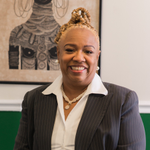
Karen Allen, MSW
Clinical Director
- Room: Dominion
- 4:00 PM - 5:30 PMSawbonna: Exploring Urban Rites of Passage Models for Black Men and BoysThis workshop will delve into the benefits of using an African-centered Rites of Passage framework to engage black men and boys around healthy lifestyles, further fueling this sense of hope. The Baltimore Rites of Passage Initiative (BROPI) is a beacon of community-based African-centered Rites of Passage (ROP) programming for Black men and boys from 11 to eldership.
Track: Founding Prinicples and Values
1.5 CEUs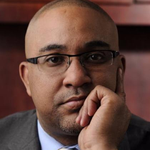
David Miller, PhD
Senior Technical Writer/Researcher
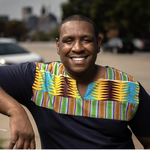
Bobby Holmes, MSW, LCSW-C, LICSW
OwnerFounder
- Room: Commonwealth
- 4:00 PM - 5:30 PMShared Pan African Experiences with Black Social Workers and Allies during the 43rd International Education Conference in Ghana: A Qualitive Focus Group StudyThrough Afrocentric education, Black Social Workers learn to determine what is in our interest, distinguish our interests from those of others, and recognize when our interests are consistent and inconsistent. It provides a means for the transmission into social work practice concepts of African values, beliefs, traditions, customs, rituals, and mythologies, along with the knowledge of why these things must be sustained.
Track: Social Work Education
1.5 CEUs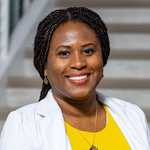
Amber Davis, PhD, LMSW, LCSW -C
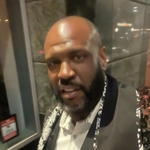
Darron Garner, PhD, LCSW-S

Kristi Love, MSW
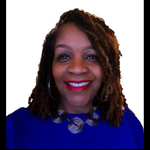
Eveangel Savage, PhD
- Room: Shenandoah
- 4:00 PM - 5:30 PMLeonard G. Dunston African Centered Nea Onnim CircleClosed Session (Open only to Academy & Circle Graduates Only)
- Grand Ballroom
- 1:15 PM - 3:45 PMOpening Ceremony
- Capital Ballroom
- 5:30 PM - 7:30 PMYou Down With OPP”: “Knowing Your Place vs. Owning your Place and PositionMany individuals (micro) and organizations (macro) do not have a clear understanding of their roles and layers of those roles based on responsibilities. This session will help you identify your role, therefore allowing one to own both place and position in the larger systems perspective. In this session we will use this foundation as a tool to help social workers to improve your client/organizational assessments and care plans in macro and micro environments.
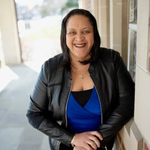
Leticia Horry, MSW
Leukemia and Myeloma Programs – Administrative Assistant Senior at University of Michigan
- Capital Ballroom 2
- 5:30 PM - 7:30 PMApplication of Africana-Centered Social Work Practices Through Curriculum Collaboration Strategies between Social Work and Africana Studies: Insights and EffortsResponding to EPAS 2022 and its commitment to advancing Anti-Racism, Diversity, Equity, and Inclusion (ADEI), the College of Social Work at the University of Tennessee has explored varied approaches for incorporating ADEI principles and practice within the course content, field practicum, and into curriculum design, courses, and course content the curriculum. One of these approaches included a comprehensive assessment of ADEI content in the curriculum.
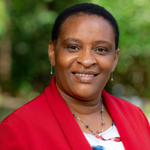
Mary Gitau, PhD
Associate Dean of Equity and Inclusion at College of Social Work, University of Tennessee
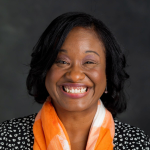
Javonda Williams, PhD
Associate Dean for Academic Affairs and Professor
- Capital Ballroom 3
- 5:30 PM - 7:30 PMBlack Child Don't you Weep: Using an Empathic and Culturally Informed Approach to Engage Children and Adolescents Experiencing Grief and LossBlack children and adolescents experiencing grief and loss are especially vulnerable to psychological, physiological, and behavioral challenges that could occur when their anguish is inadequately managed. The negative effects of grief are exacerbated when it is compounded by factors such as systemic racism and complex trauma experienced from prolonged exposure to adversity, abuse, or neglect.
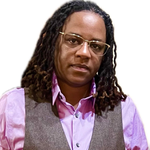
Kameko Styles, LICSW; LCSW-C
Director of Youth, Birth Family, and Community Engagement at National Center for Children and Families
- Capital Ballroom 4
- 5:30 PM - 7:30 PMReclaiming Power: African-Centered Leadership Child WelfareThis presentation emphasizes the importance of African-centered practices in developing effective child welfare leaders. This presentation explores how African-centered practices, combined with effective leadership strategies, can drive systemic change while preparing social workers for leadership roles that reflect these values.
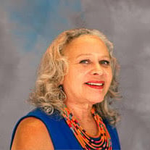
Dana Burndell Wilson, PhD
Associate Professor of Social Work and Interim Chair of the MSW Department at the Morgan State University School of Social Work at Morgan State University School of Social Work
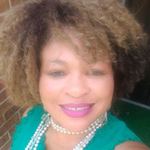
Belinda Smith, PhD, LCSW
Associate Professor, Social Work, MSW Department at Morgan State University at Morgan State University
- Room: Salon J
- 10:30 AM - 12:00 PMBlack Perspectives of Course Design for Black IssuesThis interactive workshop leads participants through the process of creating courses that prepare emerging social workers to address anti-Black racism in practice from a decolonized, social justice perspective. Participants will examine the structural determinants of Black physical and mental health and explore the impact of anti-Black racism on Black communities.
Track: Social Work Education
1.5 CEUs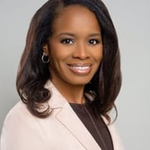
Monique Bostic, DSW, LCSW
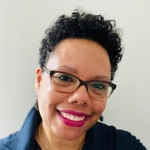
Constance Perkins, DSW, LCSW
- 4:00 PM - 5:30 PMA.I. Ancestral Intelligence, Traditional African Spirituality, and the Re-Birth of the Black Family in AmericaThe workshop will focus on Ancestral Healing from the wounds of the MAAFA (Trans-Atlantic Slave Trade). The workshop will explore the power of Ancestral Veneration and its historical role in the Maroonage (Liberation) Movements in the Western Hemisphere. Participants will also be exposed to traditional forms of Ancestral Technology (Ancestral Altars) and Rituals that are used to Re-Awaken Ancestral Collective Consciousness.
Track: Founding Principles and Values
1.5 CEUs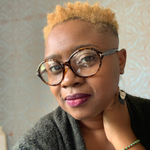
Amanda Morgan, LCSW-C
MSW Practicum Director, Chamberlain University
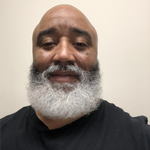
Okomfo Olufemi Shepsu, MSW
- Room: Salon I
- 4:00 PM - 5:30 PMThe Use of Flow Arts & Hula Hoop Activity to Understand Nguzo Saba as an alternative Mental Health, Therapeutic and Wellness InterventionThe purpose of this workshop is to educate social workers on the historical impact of dislocation on our mental health, to offer alternative mental health treatment approaches and encourage practitioners to provide the information back to their prospective communities.
Track: Mental Health & Addictive Behaviors
1.5 CEUs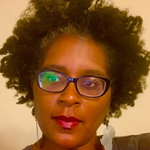
Shawneladee Cole, PhD, LCSW-R
- Room: Salon H
- 10:30 AM - 12:00 PMLet’s Talk about Opposition in Adolescence through an African-Centered Lens: Changing the Way We See, Understand, and Relate to Adolescents in Our Lives!This workshop will discuss the need for opposition to be seen on a continuum with healthy and constructive degrees of opposition as part of typical development at one end of the continuum and opposition as a disorder at the other end. This view of opposition as a disorder is limiting and puts adults in conflict with youth.
Track: Youth Development
1.5 CEUs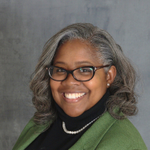
Tawanda Hubbard, DSW, MSW, LCSW
- 4:00 PM - 5:30 PMThe Black Bear Project: Honoring the Voices of Mothers Raising Black and Brown SonsThis session, inspired by the Black Bear Project, is designed to explore the profound impact of traditional gender roles on mothers raising Black and Brown sons, even when fathers are present and involved. Anchored by a powerful photo exhibit and mini-documentary, the workshop delves into the unique challenges these mothers face in navigating societal expectations.
Track: Child Welfare and Family Preservation
1.5 CEUs
Dayeshell Muhammad, EdD
- Room: Salon G
- 10:30 AM - 12:00 PMMindfulness, Somatic Movement, and African-Centered Practices for Black Men in Social WorkThis workshop proposes an opportunity for social workers to address effective social work practices with a critical examination of the integration of mindfulness, somatic movement, African-centered practices, and learn about evidence-based programs to enhance interventions with Black men. This proposal will explore how combining mindfulness-based practices and somatic therapies.
Track: Social Work Practice
1.5 CEUs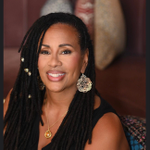
Camille Banks-Lee, DSW
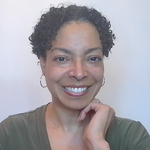
Shawna Aarons-Cooke, DSW, LCSWR
President & CEO of Blanton-Peale Institute and Counseling Center
- 4:00 PM - 5:30 PMIntegrating African-Centered Approaches into WellnessThis presentation will explore the integration of African Centered Wellness strategies into the professional development of Black Social Workers, emphasizing the need for a holistic approach the unique challenges faced by Black Social Workers.
Track: Health and Wellness
1.5 CEUs
Latanya Townsend, PhD
Executive Director of Embracive Wellness
- Room: Monroe
- 10:30 AM - 12:00 PMSuicide Prevention Among Young African American Males: Implications for Evidence-Based PracticeThe decidedly unfortunate and startlingly alarming phenomenon of suicide among your African American males, (ages 15-24) continues to perplex social workers, school guidance counselors, and behavioral scientists. This workshop will explore the origins of these trends, and will also provide participants with culturally specific, evidence-based approaches for intervention.
Track: Youth Development
1.5 CEUs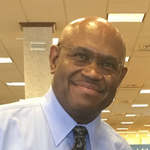
Oliver Johnson, PhD, LCSW, LCAS, CCS
Professor
- 4:00 PM - 5:30 PMBody Talk: The Tale of Afrocentric HealingThis workshop will explore the integration of Afrocentric healing practices into contemporary social work through a case study examining two therapeutic lenses: Somatic Experiencing (SE) and Internal Family Systems (IFS). Each approach will be analyzed through an African-centered worldview, emphasizing their compatibility with the foundational principles of African-centered social work.
Track: Social Work Practice
1.5 CEUs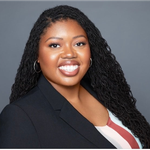
La' Toya Edwards, DSW, LCSW
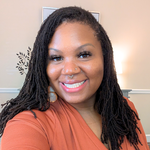
Shae Ivie-Williams, MA, LPCC, CPCS, LPC
Therapist|Private Practitioner
- Room: Jefferson
- 10:30 AM - 12:00 PMYoga and Mental Health in Black CommunitiesThis workshop will provide education about the history of yoga (including its origins in Kemet),
basic principles of yoga, its relationship with mental health, and how to incorporate it into
treatment planning. This workshop will also illustrate the mind-body connection and
demonstrate how to utilize three of the eight limbs of yoga: asana (poses), pranayama (breath
work), and pratyahara (withdrawal of senses) to support mental health. This can be impactful in
addressing the effects of direct trauma as well as intergenerational trauma in Black
communities.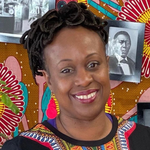
Keisha Cox, LCSW, MS
Therapist
- Room: Madison
- 10:30 AM - 12:00 PMKnow Before You Grow: Your Path to Social Work LicensureParticipants will gain a solid understanding of the qualifications required for licensure. The session will also highlight what it means to "get licensed and live licensed," ensuring students understand not just how to obtain their credentials but also how to uphold professional standards and stay compliant with regulatory expectations.
Attendees will also explore the broader social work regulatory framework, learning how to access the resources and tools available to guide them through the licensure journey. The session will include an interactive component, such as a brief poll to gauge students’ familiarity with licensure and a hands-on activity where they match key licensing terms with definitions to reinforce learning in an engaging way.
By the end of this session, students will have a strong grasp of the licensure process, regulatory expectations, and practical career preparation strategies. They will leave empowered to take proactive steps toward licensure, equipped with the knowledge and resources needed for a smooth transition into professional practice. Whether they are just beginning their social work education or preparing to graduate, this session will give them the tools to confidently navigate their path to licensure.
Track: Social Work Education
1.5 CEUs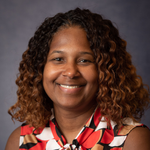
Jacqueline Braxton, MSW, LCSW
Licensed Examination Development Project Coordinator at Association of Social Work Boards
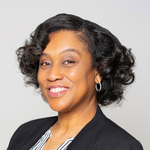
Dionne Brown-Bushrod, MSW, LCSW-C
Director of Education Programs at Association of Social Work Boards
- 4:00 PM - 5:30 PMKeeping Kids in the Home and out of the system: The culture of system involved youthParticipants will be introduced to the concept of “the culture” of system-involved youth. The culture concept is adapted from ecological systems theory (EST) developed by Bronfenbrenner in 1979, The theory posits that a person’s environment influences how they will develop.
Track: Youth Development
1.5 CEUs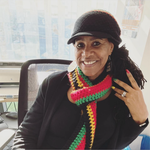
Lisa Hill, PhD, LMFT
Psychotherapist/Professor
- Room: Dominion
- 4:00 PM - 5:30 PMBring It to the Circle: An African-Centered Approach to Problem Solving, A Fishbowl ExplorationThis workshop is designed to provide an immersive and collaborative experience for participants to engage in the practice of African-centered solutions to contemporary issues. Rooted in the principles of African communalism, this workshop draws on the rich traditions of collective wisdom, dialogue, and Ubuntu to approach complex challenges facing African and African-descended communities today.
Track: Founding Principles and Values
1.5 CEUs
Keisha Allen, DMin
BFDI International Training Institute
- Room: Commonwealth
- 10:30 AM - 12:00 PMIntegrating Social Media in Mental Health Therapy: Best Practices, Benefits, and Ethical Considerations for the Black CommunitySocial media plays a significant role in the Black community across all age groups. From Facebook and Instagram to TikTok and online forums, social media platforms are reshaping communication, and even mental health. This workshop will explore how social media can be effectively and ethically utilized in mental health care.
Track: Mental Health and Addictive Behaviors
1.5 CEUs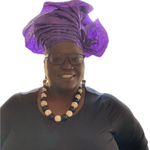
Tiffany Person, LMSW
Therapist
- 4:00 PM - 5:30 PMYes You Can! Preparing for the Social Work Licensing ExamYou may be feeling discouraged, anxious , and overwhelmed with the need to pass your social work licensing exam thereby hindering your ability to enhance your professional development and career growth. This workshop is an opportunity to help you take what you have learned, identify the biases and make it applicable to the exam so that you can be successful in passing.
Track: Social Work Education
1.5 CEUs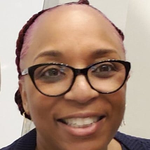
Wendy Alias, LCSW, LICSW
- Room: Shenandoah
- 10:30 AM - 12:00 PMLeonard G. Dunston African Centered Nea Onnim CircleGraduation - Open Session
- Grand Ballroom
- 8:00 AM - 10:15 AMJoan E. Coleman Family Symposium - "Social Workers In Action"Track:
2.0 CEUs - 12:45 PM - 3:15 PMCenie "Jomo" Williams, Jr. Luncheon
- Room: Salon J
- 11:00 AM - 12:30 PMBlack Resistance: The Meaning of August 5thThis workshop will define Black Resistance, honor the many contributions of Black Resistance from around the globe as an effort to elicit a commitment to be intentional in the use of self-embodying the principles of NABSW’s code of ethics regardless of age, education or experience and tap into our most basic intellect and instinct embedded in our DNA to act and move the needle towards social action and civil liberties daily.
Track: Founding Principles and Values
1.5 CEUs
Jataun Rollins, LMSW
- Room: Salon I
- 11:00 AM - 12:30 PMFatherhood Manologues WorkshopThis workshop provides a unique opportunity to explore the profound impact of fatherhood and the experiences of being fathered through storytelling and reflection. It allows social workers to better understand the diverse narratives surrounding fatherhood, which can enhance their practice and interventions with clients.
Track: Social Work Practice
1.5 CEUs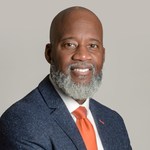
Abdul-Rahmaan Muhammad, MSW
- Room: Salon H
- 11:00 AM - 12:30 PMExamining Barriers to Housing Stability for Homeless Black VeteransThis workshop explores the urgent issue of housing instability among Black Veterans, who are disproportionately represented in the homeless Veteran population. This workshop will provide a comprehensive examination of the root causes of this disparity and propose culturally tailored interventions to mitigate these challenges.
Track: Military
1.5 CEUs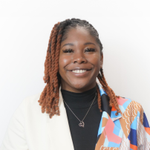
Kianna Laing, LCSW-C, LMSW
- Room: Salon G
- 11:00 AM - 12:30 PMGirls Under Fire 2024The current climate underscores an urgent need to focus on the well-being of black and brown girls, whose experiences are heavily influenced by societal perceptions. Critical areas requiring attention include mental health, adultification, and the role of social media. As rates of suicide among young black girls rise, it becomes essential to identify and address the underlying factors contributing to this crisis.
Track:
1.5 CEUs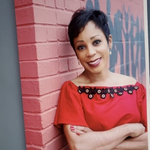
Melissa Fanning, MS, BS
- Room: Monroe
- 11:00 AM - 12:30 PMAddressing the Adversities in African American Families through an Experiential Exploration for Innovative Interventions and Systems ChangeAdverse Childhood Experiences (ACESs) are traumatic experiences which may have negative long-lasting effects on the health and wellbeing of children through adulthood. ACEs are a reality for many individuals and families. This simulation experience was developed to provide a glimpse of the effects of early and chronic traumatic experiences such as abuse, neglect, and exposure to substance abuse, mental illness and violence in homes and communities.
Track: Youth Development
1.5 CEUs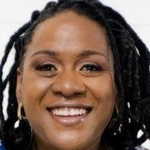
Benjenus Jenkins, LCSWA, LCAS-A
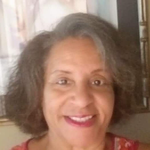
Danette McLaurin Glass
- Room: Jefferson
- 11:00 AM - 12:30 PMAddressing Mental Health Disparities for Black Service Members OverseasThe presentation will propose solutions for equitable mental health care for Black service members. The presenter will discuss equitable mental health care solutions including implementation of the Patient and Carer Race Equality Framework (PCREF), the expansion of Africentric Resilience Training (ART), and expansion of telehealth services.
Track: Military
1.5 CEUs
Mirissa Jackson, LCSW-C, BSP, LCDC-1
- Room: Madison
- 11:00 AM - 12:30 PMWhat Works Shouldn't Hurt: Conducting African-Centered Research & EvaluationsConducting research and program evaluations using the Synergy Framework encourages researchers, and clinicians that use evidence-based research to inform their practice, to name the barriers and opportunities within both the individual and collective experience of communities of color and operationalize these issues within research.
Track: Social Work Practice
1.5 CEUs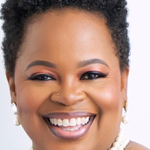
Akosoa McFadgion, PhD, MSW
Clinical Director, Researcher, Adjunct Professor of Compass of Hope
- 12:45 PM - 2:45 PMPODCAST Living Your Legacy: Strategies for Cultivating Generational Health in the Black CommunityJoin Tony Vidal and KR Jones for an engaging live OFF THE STRENGTH podcast at this year's National Association of Black Social Workers conference, where we'll explore actionable strategies to foster generational health within the Black community.
This conversation will delve into the systemic challenges and community-driven solutions pivotal to enhancing health outcomes for people of African ancestry.
Track: Health & Wellness
2.0 CEUs
Kyle R. Jones, BS
Co-Host Off The Strength Podcast

Tony Vidal, MS
Founder of Off The Strength
- Room: Dominion
- 11:00 AM - 12:30 PMThe Uniqueness of the Effective Black Parenting Program for African American ParentsThis session will present an evidence-based African-centered model for teaching African American parents. This is a train-the-trainer approach. Participants will become familiar with the foundation and components of the Program and learn how to access full 5-day remote training to become certified facilitators.
This is a train-the-trainer approach. Participants will become familiar with the foundation and components of the Program, and learn how to access full 5-day remote training to become certified facilitators. After training, participants will be given a toolkit to educate parents on the local level. Strategies will include Effective Praise, Effective Verbal Confrontation, Family Rule Guidelines, The Thinking Parents Approach, Teaching their Children Pride in Blackness, and Teaching their Children How to Help the Black Community. Parents will also teach their children how to respond to micro-aggressions and macro-aggressions.
Track: Child Welfare and Family Preservation
1.5 CEUsKinaya Sokoya, EdD, CSWM
Executive Director|Consultant
- Room: Shenandoah
- 11:00 AM - 12:30 PMLeonard G. Dunston African Centered Nea Onnim Circle (Special Session for All Academy & Circle Graduates Only)Special Session Closed Session for All Academy & Circle Graduates (Closed Session)
Track: Social Work Education
CEUs - TBD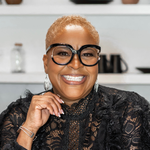
Rhonda Wells-Wilbon, PhD
Professor of Social Work at Morgan State University
- 12:45 PM - 2:15 PMLeonard G. Dunston African Centered Nea Onnim Healing Circle (Open Session)The Leonard G. Dunston African-Centered Nea Onnim Healing Circle is a sacred space designed exclusively for members of the National Association of Black Social Workers (NABSW). Rooted in African cultural traditions, communal wisdom, and the principle of Nea Onnim No Sua A, Ohu ("He who does not know can learn"), this healing circle provides a transformative space for self-care, empowerment, and resilience-building.
Recognizing the emotional and psychological toll of working with and advocating for oppressed Black populations, this healing circle equips participants with culturally grounded strategies to strengthen their well-being. Through guided reflection, storytelling, mindfulness, and African-centered rituals, participants cultivate the inner balance needed to sustain their professional and advocacy efforts.
Track: Health & Wellness
1.5 CEU
Rhonda Wells-Wilbon, PhD
Professor of Social Work at Morgan State University
- Grand Ballroom
- 8:30 AM - 10:45 AMDr. Gerald K. Smith Social Issues Symposium - "The Power of Determination"
- 7:00 PM - 9:00 PMDr. Morris F.X. Jeff, Jr. Harambee Ceremony
REGISTER FOR CONFERENCE
Conference Speakers

Shawna Aarons-Cooke, DSW, LCSWR
President & CEO of Blanton-Peale Institute and Counseling Center

Linwood Alford, MSW, BHT, HST, QMHP A/C
Owner at Open Door Resource Center Inc

Wendy Alias, LCSW, LICSW

Keisha Allen, DMin
BFDI International Training Institute

Karen Allen, MSW
Clinical Director

Catina Anderson, BSW, MSW, LSW, CSAYC
Member-At-Large

Camille Banks-Lee, DSW

Monique Bostic, DSW, LCSW

Jacqueline Braxton, MSW, LCSW
Licensed Examination Development Project Coordinator at Association of Social Work Boards

Dionne Brown-Bushrod, MSW, LCSW-C
Director of Education Programs at Association of Social Work Boards

Dana Burndell Wilson, PhD
Associate Professor of Social Work and Interim Chair of the MSW Department at the Morgan State University School of Social Work at Morgan State University School of Social Work

Jaire Clarida, MSW, LMSW, LCSW-A
PhD Student at Morgan State University School of Social Work

Shawneladee Cole, PhD, LCSW-R

Ceara Corry, MSW, MPA, LCSW, LISW-CP
MSW, MPA, LCSW, LISW-CP

Keisha Cox, LCSW, MS
Therapist

Lurie Daniel Favors, Esq
Executive Director of Center for Law and Social Justice at Medgar Evers College

Amber Davis, PhD, LMSW, LCSW -C

La' Toya Edwards, DSW, LCSW

Melissa Fanning, MS, BS

Darron Garner, PhD, LCSW-S

Patrick O. Gee, Sr., PhD, JLC
AKF Ambassador and Board Member at American Kidney Fund

Jermel Gilliam, DMin, ABD, LMSW

Christa Gilliam, PhD
Associate Professor

Mary Gitau, PhD
Associate Dean of Equity and Inclusion at College of Social Work, University of Tennessee

Lisa Hill, PhD, LMFT
Psychotherapist/Professor
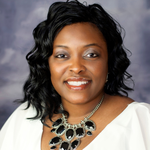
La'Toya Hines, MSW, LCSW

Bobby Holmes, MSW, LCSW-C, LICSW
OwnerFounder

Leticia Horry, MSW
Leukemia and Myeloma Programs – Administrative Assistant Senior at University of Michigan

Tawanda Hubbard, DSW, MSW, LCSW
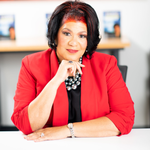
Bishop S. Janine Hyman, PhD
Kingdom Life Apostolic Movement

Shae Ivie-Williams, MA, LPCC, CPCS, LPC
Therapist|Private Practitioner

Mirissa Jackson, LCSW-C, BSP, LCDC-1

Benjenus Jenkins, LCSWA, LCAS-A

Dr. Tiffany, EdD Johnson
Chief Operating Officer at Lakeside Community Committee

Oliver Johnson, PhD, LCSW, LCAS, CCS
Professor

Aramia Jones, BA
Renew Mobile Health

DeMarcus Jones, BA
Planned Parenthood of Tennessee & North Mississippi

Kyle R. Jones, BS
Co-Host Off The Strength Podcast

Kianna Laing, LCSW-C, LMSW

Kathy Lopes, MSW, LICSW
DEI Director of Newton Public Schools

Kristi Love, MSW

Anika Lucas, MD, MTS
Assistant Professor of Medicine at Nephrology Fellow at Duke University

Akosoa McFadgion, PhD, MSW
Clinical Director, Researcher, Adjunct Professor of Compass of Hope

Zakia McKensey
Executive Director Nationz Foundation

Danette McLaurin Glass

David Miller, PhD
Senior Technical Writer/Researcher

Andrea Moore, LMSW
Licensed Master Social Worker at DaVita Kidney Care

Amanda Morgan, LCSW-C
MSW Practicum Director, Chamberlain University

Dayeshell Muhammad, EdD

Abdul-Rahmaan Muhammad, MSW
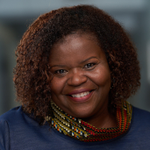
Lisa Zakia Newland, PhD
Full Professor and the Chairperson of the Department of Social Work at Molloy University

Toni Oliver, MSW
Consultant

Okomfo Olufemi Shepsu, MSW

Constance Perkins, DSW, LCSW

Tiffany Person, LMSW
Therapist
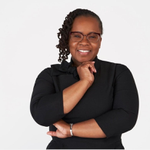
Tonya Phillips, PhD, LCSW-C, LCADC
Director

Jataun Rollins, LMSW

Tracey Rollins Spann, LMSW
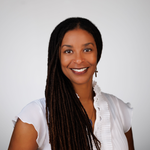
Chandra Roxanne, MS, MA
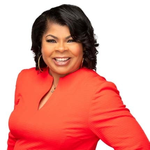
April Ryan
Washington Bureau Chief and Senior White House Correspondent at The Black Press USA

Dr. Yusef Salaam
New York City Councilman

Eveangel Savage, PhD
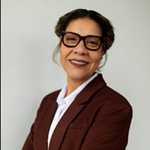
Michelle Seymore, MPNA

Belinda Smith, PhD, LCSW
Associate Professor, Social Work, MSW Department at Morgan State University at Morgan State University
- KS
Kinaya Sokoya, EdD, CSWM
Executive Director|Consultant

Nathan Stephens, PhD, LMSW
Assistant Professor at Illinois State University

Kameko Styles, LICSW; LCSW-C
Director of Youth, Birth Family, and Community Engagement at National Center for Children and Families
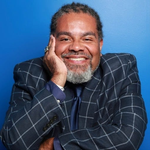
Rev. Mark A. Thompson, MDiv

Latanya Townsend, PhD
Executive Director of Embracive Wellness

Tony Vidal, MS
Founder of Off The Strength

RIta Walters, PhD, LMSW
Department Chair and Professor at Ferris State University

Rhonda Wells-Wilbon, PhD
Professor of Social Work at Morgan State University

Javonda Williams, PhD
Associate Dean for Academic Affairs and Professor

Damion Wilson, MSW
Coordinator School Social Worker
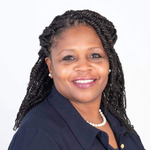
Lisa Workman, PhD, LCSWA, LSW
REGISTER FOR CONFERENCE
Sponsorship

Don't miss the chance to elevate your brand by sponsoring the NABSW Conference! With over 50K+ reach through our news, media, events, and website, plus direct access to 700+ events across vital sectors like social work, education, justice, and government, this is the perfect opportunity to showcase your organization. As a sponsor, you'll gain visibility through exhibit booths, ad spaces, and more, ensuring your message reaches a targeted and engaged audience. Join us in supporting this impactful event and secure your sponsorship today to maximize your exposure and influence!
SPONSORSHIP PACKET
https://tinyurl.com/NABSWSponsorship
BECOME A SPONSOR
https://www.paypal.com/donate/?hosted_button_id=SX74B69ZH6DLC
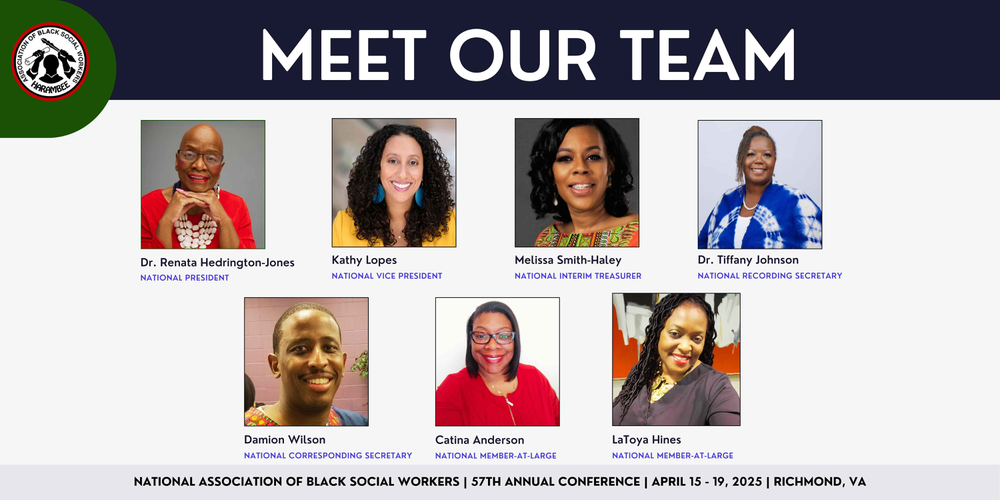
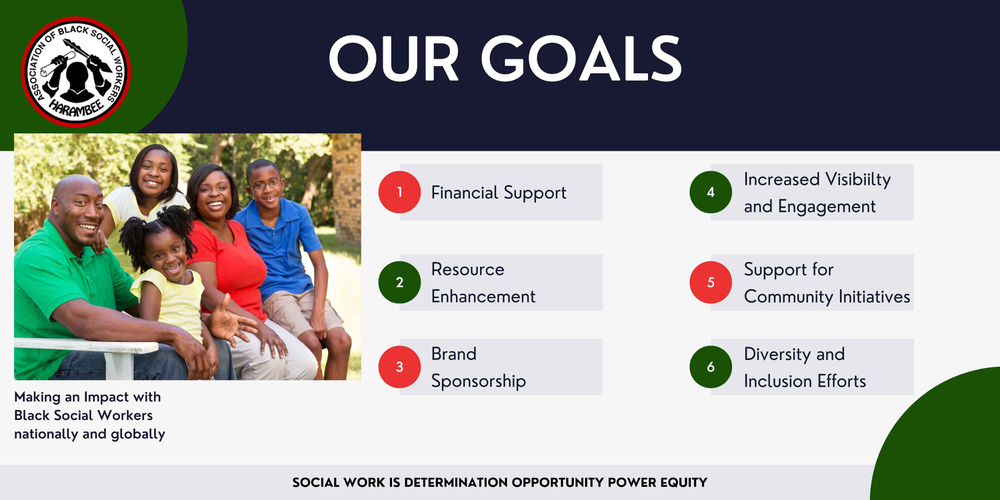
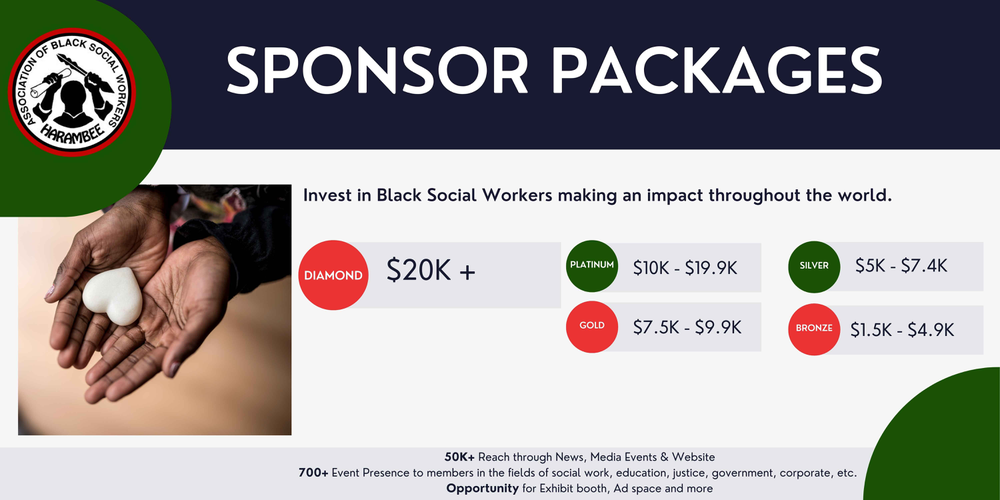
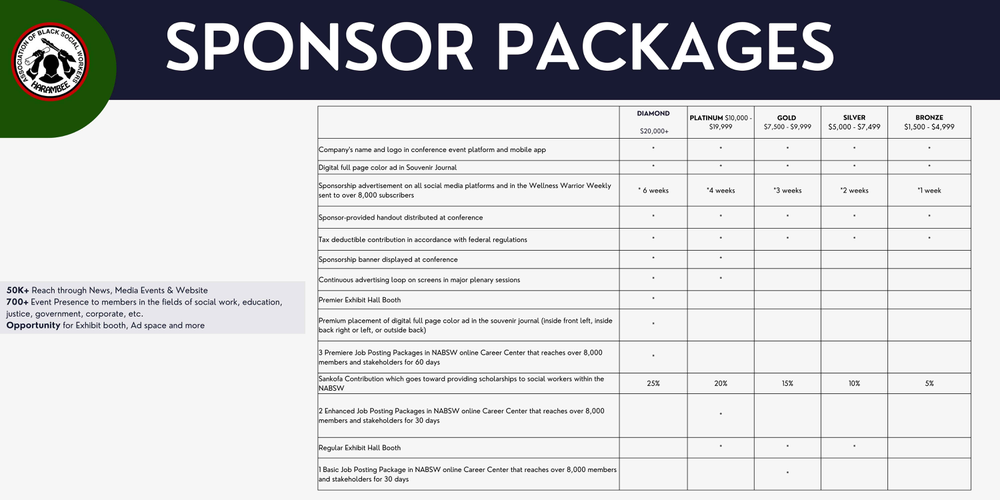
Please submit your full sponsorship payment.
You can email all advertisements, graphics, logos, etc., along with your payment by January 15, 2025.
Check/Money Order Please mail to:
NABSW, 2305 Martin Luther King, Jr., Ave., S.E. Washington, D.C. 20020
Credit Card/Invoice: Please contact our National Office Manager at Officemanager@nabsw.org to provide credit card or invoicing information.
NABSW is a 501(c)3. All contributions are tax deductible in accordance with state laws concerning 501(c)3s. If you are interested in becoming a sponsor or have any questions, please contact us at sponsorships@nabsw.org. Thank you for your time and consideration.
National Association of Black Social Workers
www.nabsw.org
BECOME A SPONSOR
https://www.paypal.com/donate/?hosted_button_id=SX74B69ZH6DLC
Exhibits

Booth Information:
Each booth will be 10 x 10 and includes one 6" draped table, identification sign, two chairs, and waste paper basket. Booths will be assigned after payment is received. Only one (1) company will be permitted to exhibit per booth. In order to receive a booth assignment, registration must be paid in full. Exhibitors may not exhibit or sell products with the NABSW emblem, or initials without prior written consent from the NABSW National Office.
Submit the application and payment at officemanager@nabsw.org by March 21, 2025. NABSW will send the exhibitor's contract after the receipt of the application and payment. An exhibitor's registration package will also be provided by the designated decorating company. Any cancellations MUST be submitted in writing by the contact person listed on the exhibit space application. All cancellations are subject to a $125 cancellation fee. Cancellations made after March 21, 2025 will not be eligible for refunds.
For further information, please contact the national office at (202) 678-4570. Thank you!
Your signature below indicates that you have the authority to submit this application on behalf of the named company. Any false information given will result in cancellation of this agreement.
Booth Set-up:
The move-in hours for exhibitors will take place on Tuesday, April 15, 2025.
Move-in Hours: Tuesday, April 15, 2025 11:00am – 3:00pm
Dismantle Hours: Friday, April 18, 2025 4:00pm – 7:00pm
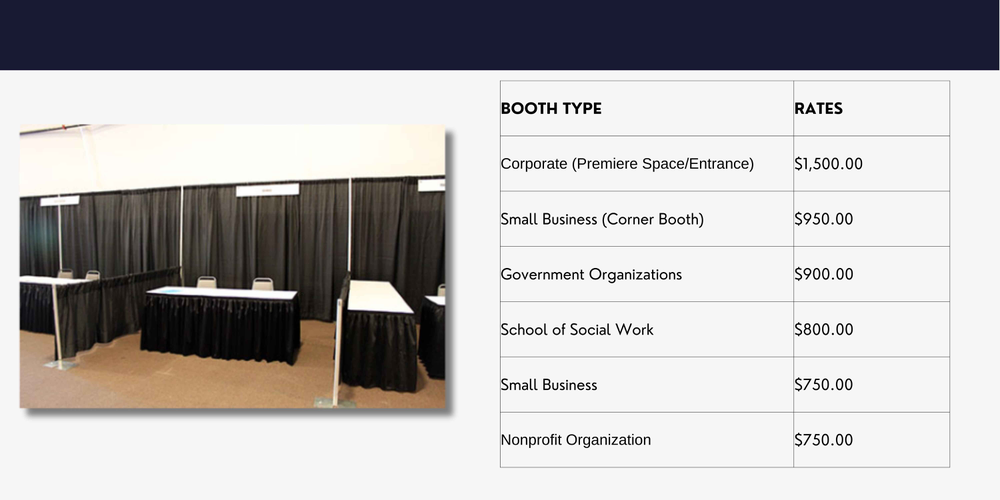
REGISTER TO EXHIBIT
Souvenir Journal Ads

The souvenir journal will be available digitally and printed (for an extra cost).
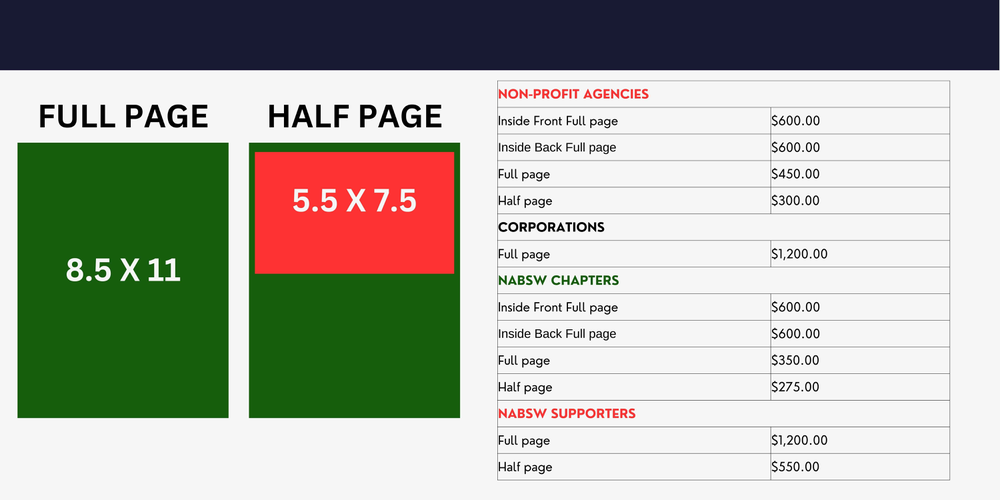
Ads should follow the dimensions and specifications above. Electronic submission of your ad in PDF, PNG or JPEG and payment in full must be received no later than January 15, 2025. Please forward electronic ads to officemanager@nabsw.org. Make checks payable to the National Association of Black Social Workers, Inc. Please mail check, copy of electronic ad and copy of form to:
NABSW Journal Ads
National Association of Black Social Workers, Inc.
2305 Martin Luther King, Jr. Avenue SE Washington, DC 20020-5813
REGISTER A SOUVENIR JOURNAL AD
Authors Pavilion

Donations to NABSW from book sales are appreciated. Contributions are tax-deductible.
For further information, please contact the NABSW National Office at (202)678-4570.
Thank you!
REGISTER FOR AUTHORS PAVILION
Community
Connect with 587 people attending this event
